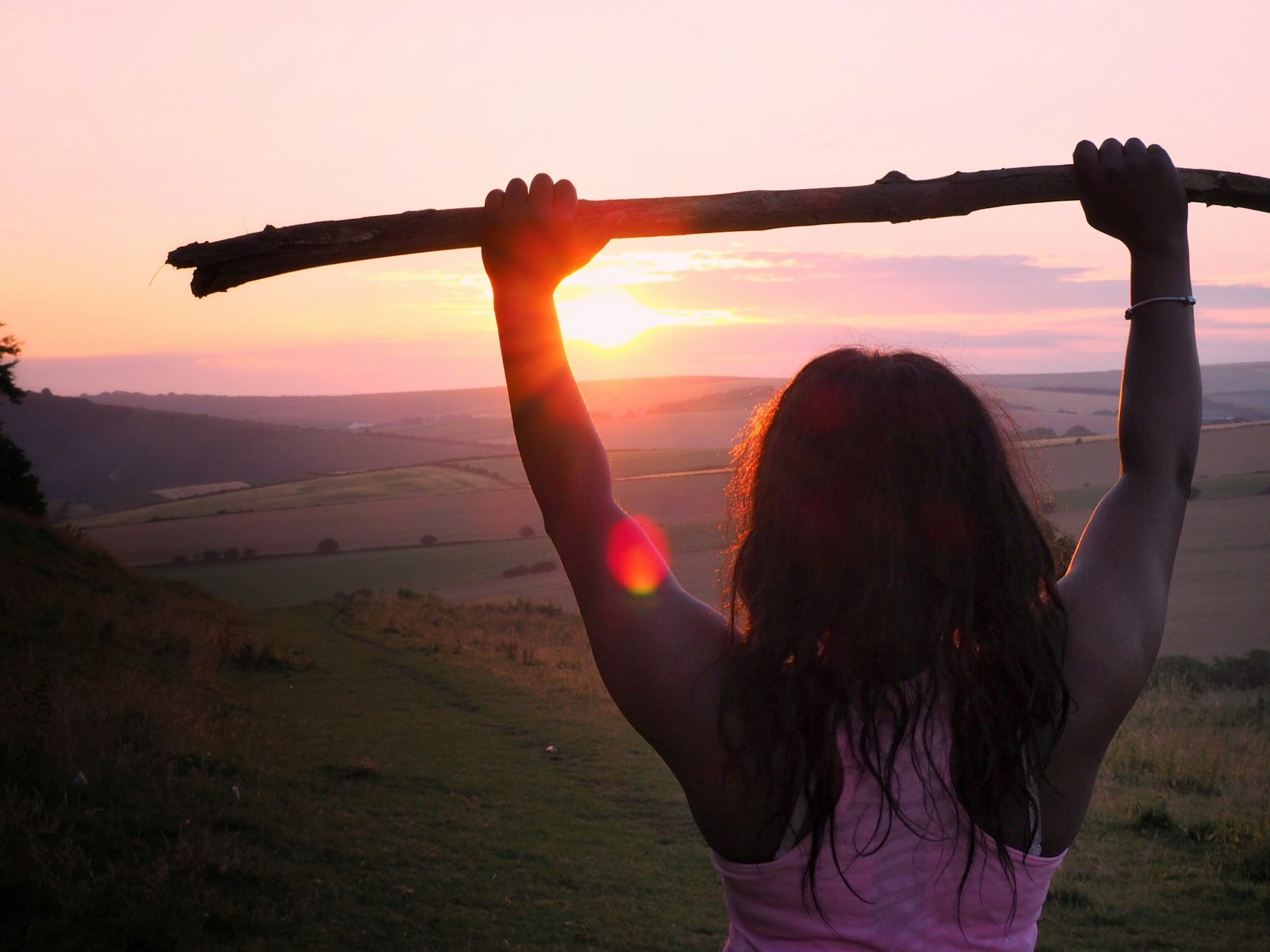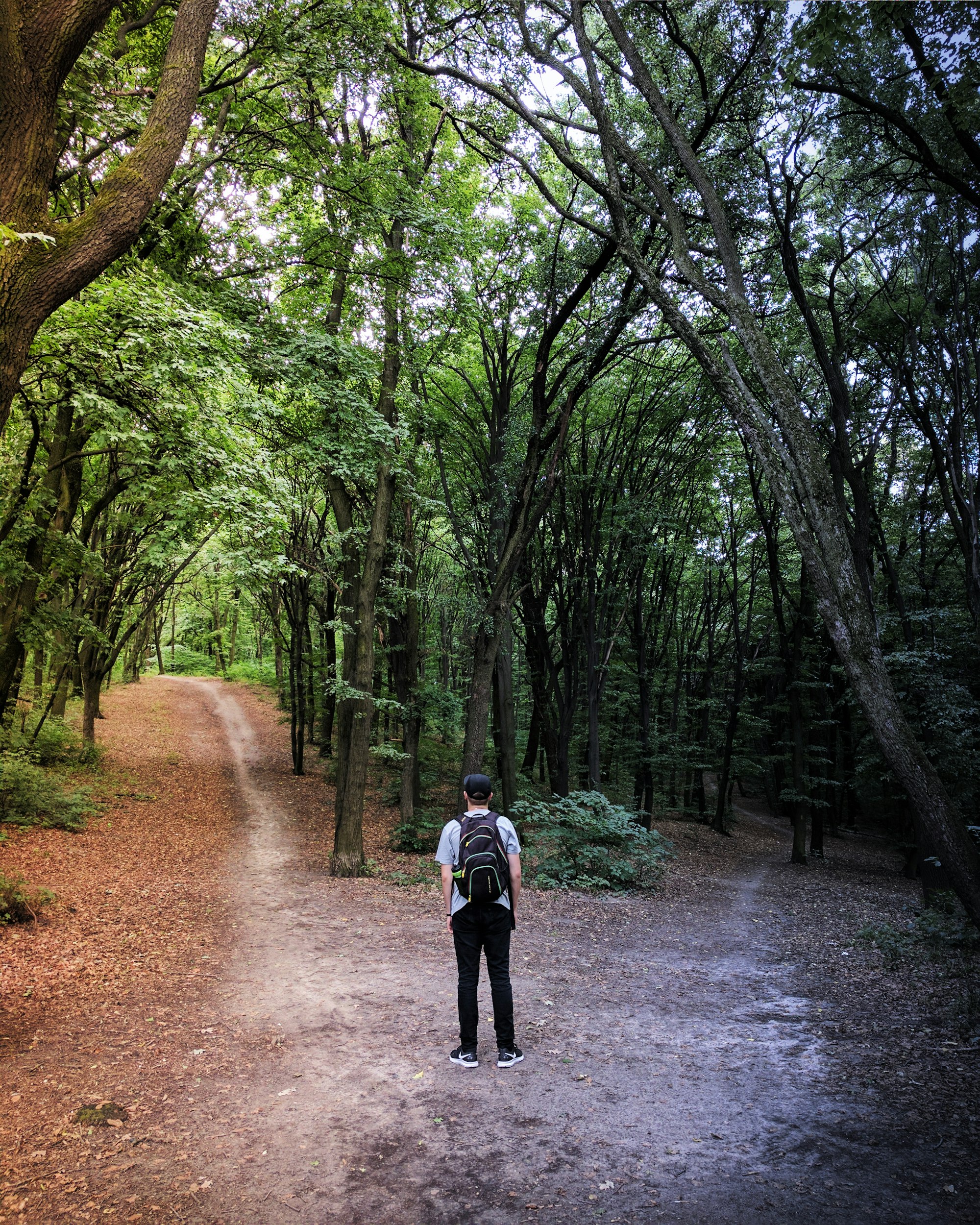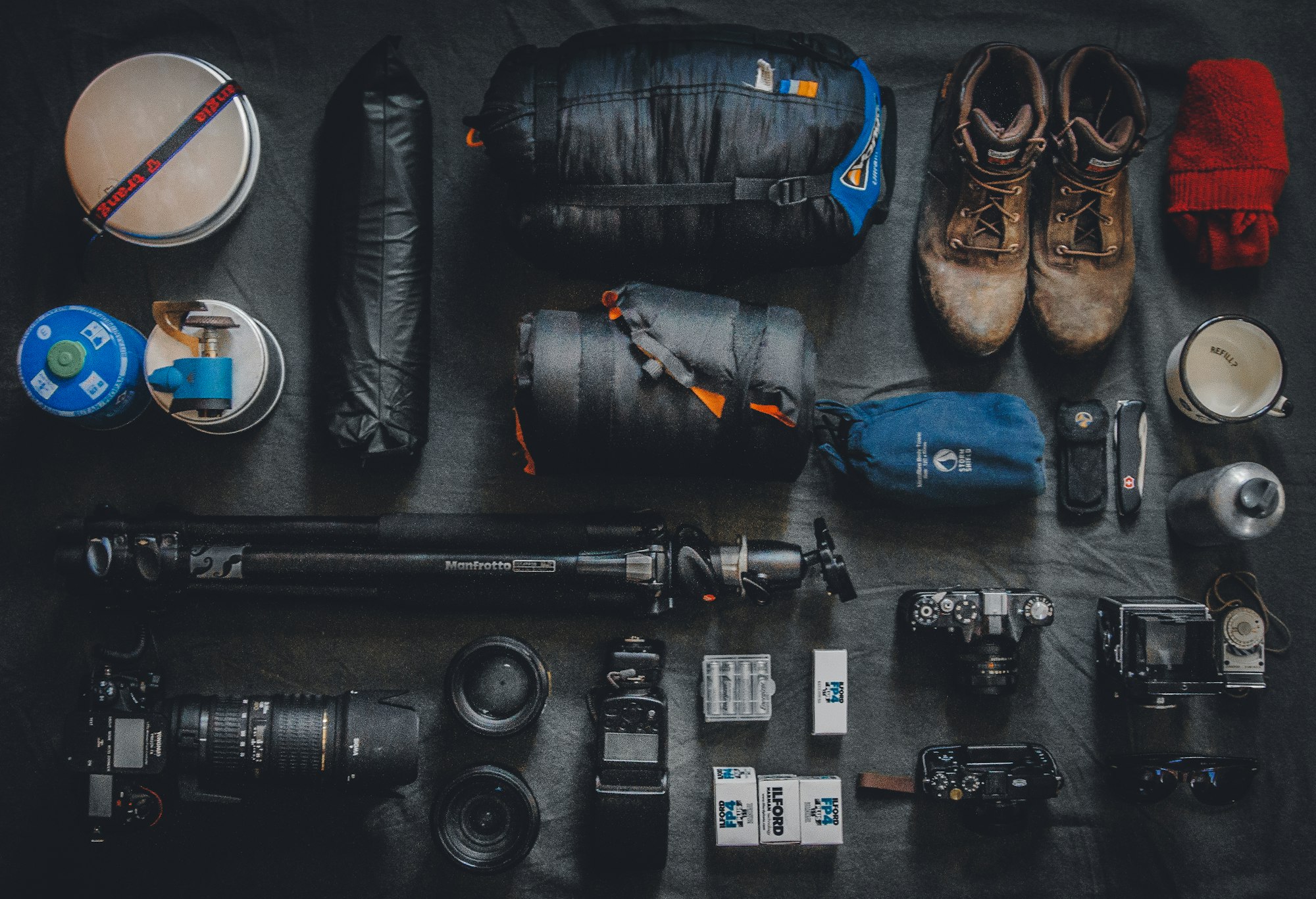Getting Into Ultra Running
Breaking some misconceptions around ultra events & how to start training for one

It's a nice day out,
somewhere pretty,
with lots of grub,
doing a light jog,
for a long time.
I've been asked a few times now how you go about training for, and even getting your head around completing, an ultra marathon. I think folks get hung up with the distance and how you would "run" for so long, so before I start I wanted to break some common misconceptions:
Misconceptions About Ultra Running

How can you run for 10 hours straight?
In ultras yes, you're doing hours of running, however you do so at a much much slower pace. Most folk's marathon pace is too fast for an ultra, my average for the last ultra (one I consider to be my best performance) was 07:13/km. A good analogue is a gentle cycle ride along a sunny path, enjoying the scenery as you do some light cardio, not pushing hard, just relaxing into a rhythm and enjoying it.
Those easy runs you do, the days where it's a light jog at a pace that feels sustainable and gentle, that's ultra pace.
There's a phrase you hear a lot in ultras: "walk the hills"; whenever a group of ultra runners reach an incline they usually slow down to a power walk and hike up. It's all about energy conservation, running up a hill takes a lot of gas and you'll not be much faster than if you walk it. Most of us take it steady, use it as a chance to eat or drink, and reset a little before the hill flattens out.
Another thing you see lots at ultras is "jeffing", aka run/walking, where you alternate between running and walking to conserve energy. I met two folks during the Winter Green Man who used this tactic from around the mid-way point, then came in with a smile and at a damn good time, just by being sensible about their reserves.
On organised ultras you tend to have aid stations and often spend a few minutes at each eating, drinking, recharging yourself and chatting to the lovely marshals. Sure you could shoot out of there quickly but 5 mins of resetting pays dividends down the line when your talking about 6+ hours of running.
Finally, there's the eating. Folks often say ultra running is "an eating contest with a bit of running thrown in" and it's completely true. Most people burn anywhere between 500-1000 calories / hour running (based on gender, weight & fitness), so you have to be constantly eating to ensure you have the fuel in your body to keep going. The worst ultras I've done weren't because of the course or conditions, they were because I didn't fuel enough and hit the dreaded wall too early.
You need to be uber athletic to enter an ultra
It's funny I've lined up at trail marathons before and felt a complete sense of imposter syndrome as I'm surrounded by all these fit, athletic looking folks about to go smash out a sub-4 hour marathon round a steep technical route.
Yet I've never felt that at an ultra, there's something about the events that attract a huge variety of people. Oh sure there's some elite folks there to complete in times that seem physically impossible, however they are always outnumbered by large groups of people that are there just to complete, purely to challenge themselves and enjoy the route.
Because ultras are more about an easy pace over a long distance & looking to complete in whatever time you can, they are weirdly accessible. The main thing you need is grit & determination, not the fitness or speed of youth.
Ultra marathons are much harder than marathons
From experience I'd say often the two are similar levels of difficulty for various reasons:
- In a marathon you're usually pushing a pace that you can sustain, but is tough, e.g. aiming for a sub-4 hour marathon (05.42/km for 4 hours). In an ultra marathon the focus is more on a gentle, easy conversational pace throughout
- In marathons, especially road marathons, aid stations are quick stops for water and maybe gels, in ultras they are a little social hub where you can spend more time recharging, eating cookies & sipping cola
- Lots of folk walk in marathons but it's less expected. Everyone, and I do mean everyone, walks bits of an ultra, usually lots of bits
I felt better after my last 40 mile ultra than I did when I last tried to push a sub-4 hour marathon, by a bloody long way!
Path to My First Ultra

Here's a quick breakdown of how I got to my first ultra, the sort of journey I had with notes on the weekly mileage at each stage:
- 16th Jun 2019 - Started Couch to 5K
- 29th Sep 2019 - First 5K
- 16th Nov 2019 - First 10k - 15km/week load
- 31st Dec 2019 - First Half - 28km/week load
- Did a half each month from here as a challenge for the year
- Mar 2020 - Averaging 40km/week load
- 1st Jul 2020 - First 30k - 50km/week load
- 20th Sep 2020 - First Marathon - 40km/week load
- From here averaged 50km to 70km / week load
- 17th Jan 2021 - First Ultra (50km) - 70km/week load
From starting C25k to my first 50km run was about a year and a half. It wasn't a pretty first ultra, lots of jeffing by the end, but I was happy with it.
Most of my training was focused on time on feet (increasing weekly load) up to around 60km average and doing a solid long run every weekend between 20km and 30km.
It was important to do a few marathons first, along with lots of 20+km runs, as it helped me understand how to eat and drink, how to fuel and manage my energy reserves over longer distances. It also gave me a chance to get use to the gear I'd be carrying, what it's like carrying enough water and food on your back in a running vest.
Picking Your First Ultra

Most ultras are trail running focused, you can also get "backyard" style ones that go around a track however we'll focus on the former here.
The benefit of a trail ultra is the scenery, it helps a lot with morale if you are exploring a new area whilst running and ensures you stay focused on the enjoyment side of the run, not the "holy shit how have I still got 3 hours to go" side of things.
Trails are also often more gentle on the soles of your feet, with softer ground underfoot leading to less fatigue.
Pegasus Ultra Running and Ultra Challenge both put on fantastic events with generous cut off times, you want organisers that put out lots of food at checkpoints and way mark the route well. Local trail running clubs also put on ultras and in my experience usually have a great atmosphere (for example Butcombe Trail Ultra by TACH), these are usually harder to find (no marketing budget) so worth asking around.
~50km (30 miles) is a good distance to aim for as a first ultra, just far enough past a marathon to be challenging, however more important than that is to choose one that excites you.
Training - General Principles

There's so many ways you could train for an ultra, and things that work for some don't work for others. Here's 4 things I've found really worked for me over the last 2 years:
Increasing Weekly Load
Steadily increase your weekly load by 10% each week (so if you ran 20k total last week, run 22k next week, then 24k, then 27k and so on). This can help prevent injury whilst slowly building up the amount of load your body can handle.
Keep going until you are hitting around 120% of the distance for the event you're training for in a week. So if you're planning a 50k, try to hit a weekly distance total of 60k for a few weeks beforehand. The idea is if you can handle that volume in a week, you can get your body use to doing it in a day.
For my first 75km run I hit 100km in a week a few times, the main benefit being that it gets your legs use to running when tired. For those peaking weeks it's important to ensure you rest well the following week.
Long Runs Are Key
Doing a solid long run at a gentle pace every weekend is essential as:
- It gets your body use to running for an extended period of time
- It allows you to practise your easy, gentle, ultra pace
- It lets you practise refuelling as you run
- You can test out your gear, carrying a pack full of supplies whilst running. Try to carry what you'd be carrying on the day of the ultra (first aid kit, waterproofs, food, water etc)
How far your long run is depends on the event, for a 50k I'd say maxing out at 30k is sufficient (be sure to have done a marathon or two first as well, you're gonna want to know what hitting the wall is like!).
Then there's the dreaded back to back, this is when you run 2 long runs over 2 consecutive days, say 30k on Saturday and 20k on Sunday. This is very good training as on that Sunday you're going to be running on tired, lethargic legs, exactly like you'll be towards the end of your ultra. It's the hardest part of training IMHO but essential, both physically and also for training you mentally to endure it.
Training On Similar Ground
If all your runs are around your local streets, but your first ultra is through rocky, rooty woodland, you won't have had a chance to get use to the technical terrain.
There's a lot more ankle movement when running over uneven ground and it's worth training on it so your body gets use to the fatiguing of those muscles that aren't necessarily tested on flatter surfaces.
If your ultra is going to be hilly, do hill sessions and chose hilly routes for your long runs. Practise walking up hills and running down them, being aware that descending fatigues your legs quite a bit too, so getting use to controlling your pace downhill in a way that doesn't break you is good practise.
Tapering
Tapering is when you reduce your training load in the 1-2 weeks before the big day, it's a contentious area, some folks stop running completely, some do less, some do the same volume but a reduced intensity, some just keep on trucking as if they don't have an ultra on the weekend!
The main takeaway is reduce your load so you are fresh for the big day, whatever that means for you. For me I've stopped completely resting before an ultra, instead cutting back to a week of chilled 5k runs and throwing in some light cross training on the bike.
Training Plans

There is an absolutely tonne of training plans out there and it can be a bit daunting to work out which one you should start with.
My first training plan was from Relentless Forward Commotion: it was good and certainly got me ready, however in hindsight it was likely much more than I needed for my first ultra, where I just wanted to complete rather than compete in any way.
Marathon Handbook have a good set of plans split between distances you want to cover and whether you're aiming to Just Finish, Improve or Compete. A friend of mine is using a Just Finish plan for their first 50k and, having reviewed it together, the build up and weekly load all look solid.
Just in case it helps anyone, my own training for 2022 looked like this:


Equipment

All ultras will come with a mandatory kit list, be sure to check this out months in advance and train with the gear. Don't wear your shiny new running vest for the first time on the day of the ultra ("nothing new on race day"), sod's law it'll chafe something fierce by mile 5 or cause you back ache because it's not adjusted right.
General gear you'll need for an ultra you may not have needed before:
- Running vest / pack to carry water, food and your mandatory kit (first aid, waterproofs). I strongly recommend a Salomon Adv Skin 12 but in fairness most major running brands do their own versions of packs so YMMV
- Water bottles / hydration pack, whichever works for you. I use 2x 500ml soft flasks for supported ultras (come with the Adv Skin above). For an ultra with no aid stations / solo ultra I'll also use a hydration bladder in my bag
- Trail running shoes, especially if you predominately do road running, find a pair that works and get use to them over long runs. This does depend on the ultra though, for VOGUM well padded road shoes would have been ideal as it was mainly hard dry ground, whilst for the Winter Green Man it's lots of mud, woodland and fields
- Running nutrition and electrolytes - see the section below for a breakdown
Fuelling
I could (and have 😅) write pages on the ancient art of fuelling you body whilst covering long distances. It's also extremely subjective and wholly dependent on your physiology, pace, training and conditions on the day.
The best advice I can give is, when running your long runs during training, test out your nutrition and hydration strategy, find out what works for you, what food you like to eat on the move, how much water you need and so on.
In terms of general guidance, this works well for me and forms the basis of my fuelling:
- 500 to 750ml water an hour
- Entirely subjective, based on how much you are sweating, however this is a good starting point
- Above everything stay on top of your water. Dehydration creeps up quickly and leads to stomach issues, performance dropping and going from "boy I'm enjoying this" to "this is literal hell"
- 400 to 600mg sodium an hour
- As you sweat you lose salt, which your body needs to move water around
- As you drink water, you dilute the remaining salts in your system, which makes you body less effective at using the water you are taking on. In extreme cases it can lead to a condition called hyponatremia, which can be dangerous
- So it's important to ensure you are taking salts in alongside the water to keep you body in balance. The amount of salt we each lose to a litre of sweat is entirely subjective, the above figures are a rough average for most folks
- You can get this in the form of capsules you swallow, tablets that go in your water, or from salty foods and gels
- 60 to 90g carbs an hour
- Eat, food = mood, and you should be constantly fuelling your body as you run to keep you glycogen stores high
- A good tip is to set a timer on your watch to go off every 20 mins, and use it as a trigger to eat a snack of roughly 20-30g carbs
Other Tips
To sign off, some other general tips for running an ultra:
- Once you finish training, ultras are predominately mental; having the discipline to stick to a gentle pace, keeping positive whilst your body fatigues, not letting doubts eat away at your morale. Practising through long runs is important
- Nutrition is key during an ultra, I obsess over it and have a cupboard dedicated to running food. Main thing is test it all out before the big day
- In fact, test everything before the big day, nothing new on race day
- Doing an ultra with a friend, or grouping up with a friendly stranger on the day, reduces the perceived load by at least half. Strongly recommend it. The worst, darkest places I've been in whilst on an ultra have always been when running solo, whilst the best have been pushing through with others
An a final point; I often hear ultra running described as "hardcore", "mad" or "insane", but in reality if you can get a marathon out of your body, you can absolutely get an ultra out of it, it's just being more conservative about your energy reserves to run slower, for longer. If my ex-smoker couch potato butt can do it, yours sure as hell can.
If you liked this post, or have any questions I can help with, do feel free to ping me on Twitter here
